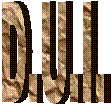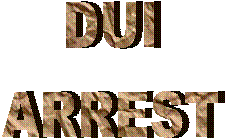 On October 1, 2008, a new law went into effect to help the state combat gang activity. The law, sponsored by a former Miami-Dade Police officer, expands anti-gang measures that were currently in place. One of those measures has many questioning how far law enforcement will go and whether our freedom of expression is being taken away. Under the new law, any person who uses of electronic communication, such as social networking, to promote gangs and gang related activity can be "liable for punishment." In Bonita Springs, Florida, only weeks after the law went into effect, the Lee County Sheriff’s Office made their first arrests. They were the first of their kind in Florida and in the nation. Now two Lee County men are facing up to five years in state prison for content posted on their MySpace pages. One showed the hand signal of the Latin Kings gang and called himself "King Kamel". The other posted pictures of his friends "making ‘Eastside’ hand gestures." The arrests in Lee County were part of an effort called "Operation Firewall" and resulted in the arrest of 15 people, including 6 middle school kids. Attorneys for the two men are challenging the law as unconstitutional. The ACLU has raised First Amendment issues stating that "the Statute is so broad that you could be arrested for something you’re not aware has anything to do with gang activity." It is likely that the decision on the constitutionality of the law will be left to the higher courts.
On October 1, 2008, a new law went into effect to help the state combat gang activity. The law, sponsored by a former Miami-Dade Police officer, expands anti-gang measures that were currently in place. One of those measures has many questioning how far law enforcement will go and whether our freedom of expression is being taken away. Under the new law, any person who uses of electronic communication, such as social networking, to promote gangs and gang related activity can be "liable for punishment." In Bonita Springs, Florida, only weeks after the law went into effect, the Lee County Sheriff’s Office made their first arrests. They were the first of their kind in Florida and in the nation. Now two Lee County men are facing up to five years in state prison for content posted on their MySpace pages. One showed the hand signal of the Latin Kings gang and called himself "King Kamel". The other posted pictures of his friends "making ‘Eastside’ hand gestures." The arrests in Lee County were part of an effort called "Operation Firewall" and resulted in the arrest of 15 people, including 6 middle school kids. Attorneys for the two men are challenging the law as unconstitutional. The ACLU has raised First Amendment issues stating that "the Statute is so broad that you could be arrested for something you’re not aware has anything to do with gang activity." It is likely that the decision on the constitutionality of the law will be left to the higher courts.
Freedom of AssemblyChapter 874 of the Florida State Statues, Street Terrorism Enforcement and Prevention regulates gang activity. Florida Statute § 874.02 states the finding and intent of this chapter. The legislature makes note of the constitutionally protected right to freedom of association and expression. This includes the right to lawfully associate with others who share similar beliefs. However, the state legislature has a compelling state interest in preventing gang activity to maintain public order and safety. "It is the intent of the Legislature to outlaw certain conduct associated with the existence and proliferation of criminal gangs, provide enhanced criminal penalties, and eliminate the patterns, profits, proceeds, instrumentalities, and property facilitating criminal gang activity, including criminal gang recruitment."
Although there is a right to associate, the Legislature has limited this right in the context of gang activity. Therefore, there are two elements that the state would have to show to limit one’s constitutional right to freedom of association. First, is that those people who the individual is associating with are in a gang. Second, the individual is associating with them as a gang member. The legislature has provided definitions to these concepts in Florida Statue § 874.03.
Limitations on association with criminal gangs include electronic communication. This type of communication is considered a third degree felony under Florida Statute § 874.11. This statute not only limits the constitutionally protected right to freedom of association, but it also limits the first amendment right of freedom of speech. Again, this freedom can be limited because of the state’s compelling interest in preventing gang activity to maintain public order and safety. The broad language of this statute includes posting audio, video or still images which furthers the interest of a criminal gang on the internet. This statute also applies to posting on the popular social networking Web sites such as Facebook and MySpace. The statute also places a limit on transmitting, distributing and selling electronically any audio, video or still image of criminal activity. Again, the associated group who’s interests are being furthered must be considered a criminal gang otherwise there is no crime, and the individual is exercising their right to freedom of association. Certainly the legislature’s attack on criminal gang activity poses the risk of restraining legitimate activities of these people. Hand signs, dress styles, and tattoos all have an element of interpretation. The use of informants acknowledges the difficulty of penetrating gangs while simultaneously conjuring images of nefarious actors targeting individuals as gang members for the informant’s own interests. We expect these and many other issues to be aired out in Court as challenges are brought questioning the statute’s constitutionality. See article links for defenses of some of the first arrests made under the Statute. The communication must intimidate or harass others or be used as a means of advertising.
Criminal GangFlorida statute §874.03(1) defines a criminal gang: "Criminal gang means a formal or informal ongoing organization, association, or group that has as one of its primary activities the commission of criminal or delinquent acts, and that consists of three or more persons who have a common name or common identifying signs, colors, or symbols, including, but not limited to, terrorist organizations and hate groups."
The section parsed requires that the following requirements must be met:
- Formal/Informal organization, association of group
- Primary activities are the commission of criminal or delinquent acts. This does not have to be most important part of the group, but just that a substantial amount of time is spent on it.
- There must be at least three people.
- The member must have something in common such as common name, identifying signs, colors, symbols.
Gang MembersThe Florida Statute § 874.03(2) states that a person is held as associating with a gang member when they either admit to that association, or the court establishes them as a member of the gang. Florida Statute § 874.03(3) lists the requirements which are needed for a person to be considered a gang member. At least two of the listed criteria must be meet before the person can be held as a gang member. The criteria listed include the following:
- (a) Admits to criminal gang membership.
- (b) Is identified as a criminal gang member by a parent or guardian.
- (c) Is identified as a criminal gang member by a documented reliable informant.
- (d) Adopts the style of dress of a criminal gang.
- (e) Adopts the use of a hand sign identified as used by a criminal gang.
- (f) Has a tattoo identified as used by a criminal gang.
- (g) Associates with one or more known criminal gang members.
- (h) Is identified as a criminal gang member by an informant of previously untested reliability and such identification is corroborated by independent information.
- (i) Is identified as a criminal gang member by physical evidence.
- (j) Has been observed in the company of one or more known criminal gang members four or more times. Observation in a custodial setting requires a willful association. It is the intent of the legislature to allow this criterion to be used to identify gang members who recruit and organize in jails, prisons, and other detention settings.
- (k) Has authored any communication indicating responsibility for the commission of any crime by the criminal gang. Where a single act or factual transaction satisfies the requirements of more than one of the criteria in this subsection, each of those criteria has thereby been satisfied for the purposes of the statute.
Electronic CommunicationsWhen the presence of a gang is established through the statutory definition, there is no protected to right to associate with members of the gang in their criminal capacity. The legislature limits this type of association specifically in the statute against electronic communication.
Florida Statute § 874.11 "Electronic communication.--Any person who, for the purpose of benefiting, promoting, or furthering the interests of a criminal gang, uses electronic communication to intimidate or harass other persons, or to advertise his or her presence in the community, including, but not limited to, such activities as distributing, selling, transmitting, or posting on the Internet any audio, video, or still image of criminal activity, commits a felony of the third degree, punishable as provided in s. 775.082, s. 775.083, or s. 775.084."
originally blogged 8/7/9
http://blogs.miaminewtimes.com/riptide/2009/08/two_florida_men_face_five_year.php
http://www.tcpalm.com/news/2009/jul/30/busted-myspace-2-fl-men-face-charges-over-gang-pho/?feedback=1
 Florida law does not require motorcycles to be insured, leaving many motorcyclists without insurance to protect themselves and others in an accident. Typically, motorcyclists are often severely injured in accidents and their medical bills quickly escalate while in emergency care. Motorcycle insurance is essential considering the rising cost of healthcare, leaving many Floridians without health insurance or means to pay their medical bills. Without proper insurance, they are faced with enormous medical bills and financial ruin.
Florida law does not require motorcycles to be insured, leaving many motorcyclists without insurance to protect themselves and others in an accident. Typically, motorcyclists are often severely injured in accidents and their medical bills quickly escalate while in emergency care. Motorcycle insurance is essential considering the rising cost of healthcare, leaving many Floridians without health insurance or means to pay their medical bills. Without proper insurance, they are faced with enormous medical bills and financial ruin. 








